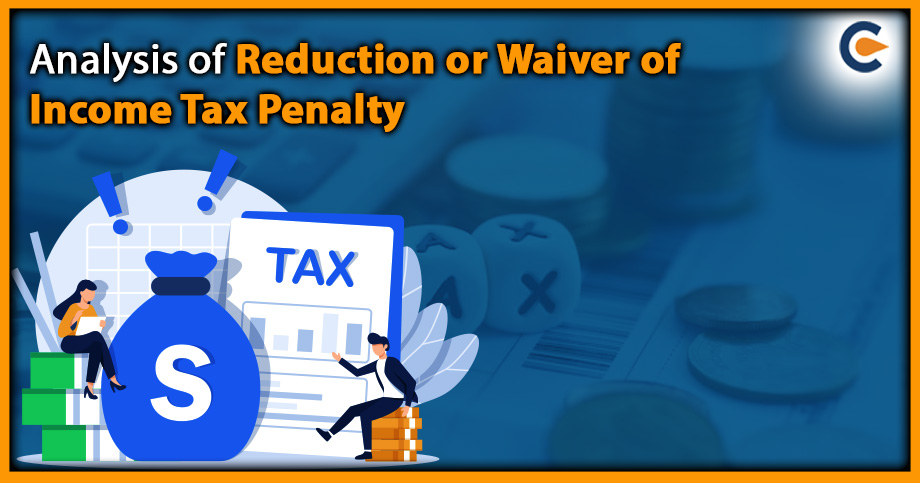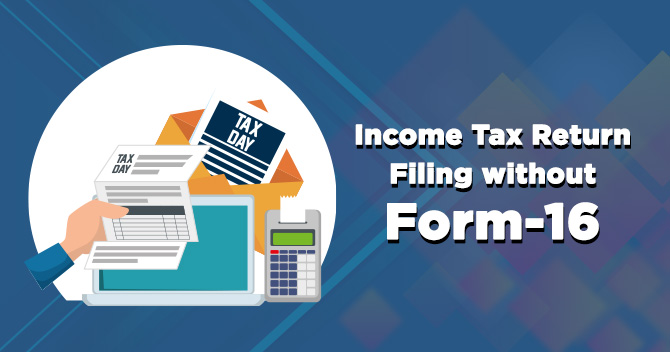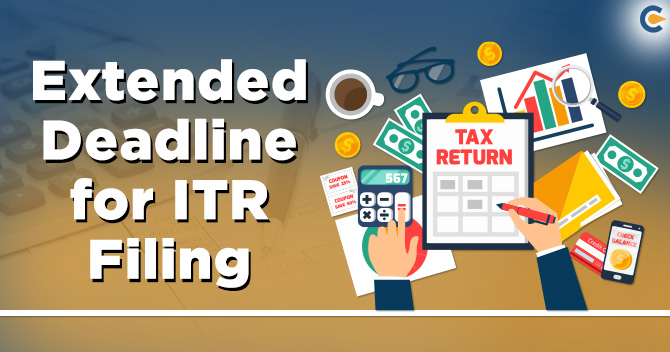The income tax penalty may be reduced or eliminated entirely at the Commissioner’s discretion. Taxpayers are obligated to make tax payments, pay interest on payments made late, and incur penalties if they are unable to fulfil their tax commitments. The following is a list of the categories that may be used to classify the fines that are imposed on taxpayers:
- Failure to pay any amount of tax
- Keeping pertinent financial information a secret
- A failing to accurately record transactions and omitting to do regular audits.
- Unable to supply the required data
- A sanction in the event that there is an investigation
- Other Transaction Defaults of a Varied Nature
In the most severe instances, the fines might amount to 300% of the amount of tax that was owing. There is a possibility of a fee on a daily basis for the total number of days that the default price remains in effect. The purpose of the fines is to act as a deterrent against future defaults. However, the Principal Commissioner or a Commissioner may choose to lessen or even completely waive any penalties that have been imposed under certain circumstances.
Section 273A: Reduction or Waiver of Income Tax Penalty Imposed Under the Income Tax Act
Subsection 1 of Section 273A– It is up to the discretion of the court to decide whether or not to decrease or waive default fines that have been imposed or are imposable in accordance with Section 270A or Section 271(1)(c). Option to Reduce or Waive of Income Tax Penalty for Defaulting on Payments Due Under Sections 270A or 271(1)(c) [Section 273A(1)].
Fines for the following offences may be reduced or eliminated at the discretion of the Principal Commissioner:
In spite of anything to the contrary in the Income Tax Act, the Principal Commissioner or Commissioner may, at his discretion, reduce or waive the amount of the penalty imposed or imposable under section 270A or section 271(1)(iii) for concealing of income, etc., provided certain circumstances are satisfied. This reduction or waiver of Income Tax Penalty is subject to the discretion of the Commissioner or Principal Commissioner.
The following conditions need to be met before a reduction in price or an exemption may take effect:
This discretion may be used by either the Principal Commissioner or a Commissioner if it is determined that the assessee holds the following:
- Made a complete and honest disclosure of any and all pertinent facts before the Assessing Officer detected any failure to do so or any deception about any income; and
- Participated with any examination into the calculation of his income; and
- Has paid or made arrangements for the payment of any tax or interest that was due as a result of an order issued under the Income-tax Act for the relevant assessment year. The person has paid any tax or interest that was due as a consequence of an order issued under the Income-tax Act. In other words, the tax year or years for which relief under Section 273A is being sought.
If the assessee meets all of the conditions listed as above, then the Principal Commissioner or Commissioner is compelled to waive the Income Tax penalty; in other words, he is bound by duty to do so and does not have any discretion in the matter.
It’s possible for a waiver to be either explicit or implicit, or even “suo moto”:
The Commissioner has the authority to modify or waive a penalty at his own discretion or in response to a request from the person being assessed.
In line with the provisions of Section 273A (1), the following is an explanation of the “deemed case of true disclosure”:
For the purposes of section 273A(1), the taxpayer will be considered to have made a complete and truthful disclosure of his income or particulars relating thereto if the difference between the assessed and reported amounts of income is of a type that does not trigger the penalties specified in Section 270A or Section 271(1)(c). This is because this type of difference does not trigger the penalties specified in Section 270A or Section 271(1)(c).
When the total amount of loss that has not been revealed exceeds Rs 5, 00,000, prior consent from the Principal Chief Commissioner or Director General:
When dealing with instances that fall under Section 271(1)(c), or section 270A the Principal Commissioner or Chief Commissioner are not permitted to make an order under Section 273A that reduces or waives the penalty.
There is just once in a lifetime availability of relief and that is as follows:
According to section 273A (1), after an assessment year for which an order was made under subsection 273A (1) of this section has passed, the taxpayer is no longer qualified to get relief under this subsection with regard to any subsequent assessment year.
- In accordance with the provisions of [Section 273A (4)], the Authority to Lessen or Do Away with any Income Tax Penalty:
Any penalty, including one imposed according to Section 271(1)(iii), may be waived at the discretion of the Principal Commissioner or any other Commissioner.
After providing reasons and without prejudice to his powers under any other provision of this Act [including section 273(1)], the Principal Commissioner or a Commissioner may decrease or waive the amount of any penalty payable by the assessee under the Income-tax Act, or stay; or compound any proceeding for the recovery of such amount if certain conditions are met
The only requirement for receiving remission is an application submitted by the taxpayer:
Only if the taxpayer makes the request to have the penalty under Section 273A(4) reduced or waived, either option is available. Officials at the Principal or Commissioner levels cannot act independently.
The following conditions need to be met before a discount or exemption may go into effect: This power may be exercised by either the Principal Commissioner or a Commissioner, depending on which he determines:
- It would be unfair to demand a different conclusion given the specific facts and conditions at hand; and
- Any inquiry or process for the collection of a debt that was owing by him was carried out with the assessee’s full participation at all times.
When the fine or the total amount of sanctions exceeds Rs. 1, 00,000 prior authorization from the Principal Chief Commissioner or the Chief Commissioner, or the Principal Director General or the Director General, is required:
The Principal Commissioner or Chief Commissioner, or the Principal Director General or Director General, as applicable, are unable to reduce or waive the penalty in situations in which the amount of any penalty payable under the Income-tax Act or, where the subject application relates to more than one penalty, the total amount of such penalties, cannot be reduced or waived. This includes situations in which the amount of any income tax penalty is payable under the Income Tax Act.
When the taxpayer requests for relief under Section 273A (4) and when the Commissioner gives his or her order under that section, there must be genuine hardship in order for the relief to be granted.
The provision of an order approving or refusing an application for a penalty reduction or waiver is subject to a time constraint that is imposed under section 273A (4A) of the statute.
The order must be made within 12 months of the last day of the month in which the application required by section 273A (4) is received by the Principal Commissioner or the Commissioner, and it must either accept the application in its whole or reject it in part. A chance for the applicant to be heard is required to take place before it is permissible to dismiss the application in whole or in part.
Circumstances under Which It Is Appropriate To Submit a Request for Immunity- Section 273AA
- Grant of Immunity as under Section 273AA (1):
You have the right to ask the Principal Commissioner or a Commissioner for an exemption from your sentence if you are able to demonstrate that the following requirements are met:
- He is responsible for submitting a settlement application in accordance with Section 245C, and all settlement processes have been reduced in accordance with Section 245HA; and
- The procedure for meeting out punishment was started with the application of this Act.
- According to subsection (2) of Section 273AA, an application cannot be lodged after a penalty has been imposed as a result of an abatement.
It is against the law to make an application in accordance with subsection 1 of section 273AA to the Principal Commissioner or any other Commissioner after the penalty has been imposed as a result of an abatement.
- In accordance with the provisions of Section 273AA (3), the Principal Commissioner or a Commissioner has the authority to award impunity, but only if they adhere to the following conditions:
If the Principal Commissioner or Commissioner is satisfied that the person has cooperated with the income-tax authority in the proceedings before him and made a full and true disclosure of his income and the manner in which such income was derived, he may grant the person immunity from the imposition of any penalty under this Act, subject to such conditions as he deems appropriate. This immunity would be subject to the person’s compliance with any conditions that the Principal Commissioner or Commissioner deems appropriate.
- The following time periods are permissible for the issuing of an order in accordance with subsection 3 of section 273AA [Section 273AA(3A)] was introduced by the Finance Act of 2016, and it went into effect on June 1, 2016]:
- The order must be made within 12 months of the end of the month in which the application is received by the Principal Commissioner or the Commissioner in accordance with section 273AA (3). The order must either accept or reject the application in its whole or in part, depending on which it is.
- A chance for the applicant to be heard is required to take place before it is permissible to dismiss the application in whole or in part.
- Immunity shall be removed in the event that the criteria outlined in Section 273AA (4) are not satisfied.
If the person who was given immunity under section 273AA (3) fails to fulfil any of the circumstances under which the immunity was granted, the immunity will be withdrawn, and the provisions of this Act will apply as if the immunity was never granted. This section applies only if the person who was granted immunity under section 273AA (3) fails to satisfy any of the conditions under which the immunity was granted.
- Infractions that result in the revocation of immunity under Section 273AA (5) include supplying inaccurate or hidden information:
If the Principal Commissioner or a Commissioner is convinced that the person concerned has, in the course of any proceedings, after abatement, concealed any particulars material to the assessment from the income-tax authority or has given false evidence, he or she has the authority to revoke the immunity granted under section 273AA(3) at any time, and the person shall then become subject to the imposition of any penalty under this Act to which the person would have been subject had the immunity not been in place. In addition, the person shall become subject
- In accordance with Section 278AB, the Principal Commissioner or a Commissioner has the authority to provide immunity from prosecution.
In situations in which the processes of the Settlement Commission are ended in accordance with section 245HA, the Commission of Income is empowered to give criminal protection in accordance with section 278AB.
- Any person whose case has been abated under section 245HA is required to submit a petition for immunity to the Principal Commissioner or Commissioner of Income-tax prior to the beginning of criminal proceedings after the abatement of their case.
- By making a request to either the Principal Commissioner or a Commissioner, the assessee has the ability to apply for exemption from prosecution at any moment during or prior to the process of settling the assessment dispute. The assessee is required to submit a plea for immunity to the Principal Commissioner or Commissioner prior to the actual institution of prosecution. This is the case if the assessee has received any notice, etc., from the Income Tax authority about the institution of prosecution.
- The Commissioner has the authority to provide immunity if they are satisfied.
In The Case That an Individual Underreports Their Income, They Are Shielded From Legal Prosecution and Fines
Section 270AA was added to the Finance Act of 2016 with the intention of protecting taxpayers from facing legal repercussions for failing to disclose all of their income. If the tax and interest payable as per the assessment or reassessment order are paid within the period specified in the notice of demand, which is within 30 days of the service of notice, and there has been no appeal filed against the assessment or reassessment order, then the taxpayer is exempt from the imposition of penalty under section 270A and the initiation of prosecution in cases of under-reporting of income. Within 1 month after obtaining the assessment order, the assessee must file a Form 68 application to claim this immunity. In order for the assessing officer to award exemption from the imposition of penalty under Section 270A and the beginning of proceedings under Section 276C or Section 276CC, certain requirements must be satisfied within 30 days of the date on which the notice of demand was served. The time allotment for the evaluating officer to reach a conclusion about the applicant’s legitimacy is one full month, beginning on the day the application was received. It is the responsibility of the one doing the evaluation to give the applicant a chance to be heard before ultimately deciding to turn down the application.
The order to evaluate must be accepted in its whole, and no part of it may be challenged via the appeals process. In addition, it is vital to keep in mind that this protection from the imposition of fines and the start of criminal proceedings applies only in the event of under-reporting one’s income and does not apply in the case of over-reporting one’s income. This fact is very important to keep in mind. The following are some examples of erroneous reporting for which you will not be able to choose this option:
- The fabrication of relevant data or the suppression of relevant data;
- Not keeping correct investment financial paperwork;
- A claim for reimbursement of expenses that is not supported by appropriate evidence;
- Creating a mistake in the input of financial data into the accounting records;
- Neglecting to account in the accounting records for any income that was received; or
- The failure to register a foreign or foreign-like transaction, a domestic transaction that satisfies specific conditions, or a foreign transaction that is considered to be a foreign transaction in accordance with Chapter X.
Conclusion
Instead of filing an appeal against the assessment order and seeking immunity from penal or prosecution provisions, it is recommended that the assessee utilize the provisions of section 270AA if certain disallowances or additions have been made that fall under the category of under-reporting of income. This is the course of action that should be taken by the assessee in the event that certain disallowances or additions have been made that fall under the category of under-reporting of income. It is imperative that it be highlighted that these restrictions only apply to the tax year 2017–18, and not to any tax years that came before it. As a consequence of this, the benefit in question does not qualify for the review of previous tax years that is presently being carried out, such as the review required under Section 148, Section 153A, or Section 153C. Regarding such scenarios, the provision of the Act known as Section 271(1) (c) continues to be in force, which enables the imposition of a penalty.
Read Our Article: Potential Consequences Of Not Filing The Income Tax Return











